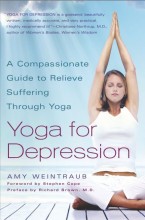
In the East, aligning oneself with a teacher has long been a venerated devotional path towards realizing one’s full potential. The word “guru” means “from darkness to light.” Devotion to a guru, it is believed, can awaken the heart, moving the devotee from the darkness of ignorance (avidya) to the light of knowledge and love, which in many Yogic traditions are one and the same. A story is often told in Yogic traditions: A farmer is desperate for water so he begins to dig a well. He digs a hole deep enough to peer inside—no water. So he digs another hole and another, and pretty soon his property is filled with shallow holes. His neighbor meanwhile has dug one hole deep beneath the surface of the earth. He has penetrated the water table and quenched his thirst. I have heard this tale repeated by several spiritual masters. It is told to illustrate the importance of aligning oneself with one spiritual tradition, following one teacher, maintaining, as it were, spiritual monogamy.
For devotional, heart-centered yoga prationers (bhakti yogis), surrender to the guru can be a metaphorical expression of the devotee’s inner embrace of the Divine. For those devoted to a guru, there are three significant aspects that have the potential to promote emotional healing. First, from a Western psychological level, there is the opportunity for change through the relationship itself. The love of the Guru, even a male guru, “is seen as the manifestation of the Shakti or the divine Mother” says author yogi Stephen Cope. (Yoga and the Quest for the True Self). Much like the transference that develops in a therapeutic relationship between therapist and patient, the guru-disciple relationship can provide fertile ground for healing. The wounds we sustained in our earliest relationships with our primary caregivers have the potential to be healed in this new “mothering” relationship. The Guru becomes a loving guide, providing a safe harbor in which the devotee may be able to work through the relationship difficulties he has had in the past.
Second, the loving connection to the guru can be the vehicle to loving the divinity within the self, the true inner sat guru (Sat means truth.). The love one feels for an idealized being such as a guru, who may or may not be enlightened, opens the heart to unconditional love, to the love of the divine. “Yogis developed an entire science of relationship,” says Stephen Cope. “The relationship with a beloved teacher (guru) became the doorway to the most profound relationship with the beloved—God in her many guises and forms.”
And thirdly, the idealized guru models an enlightened way of functioning in the world, towards which the disciple grows. Sitting with an enlightened master is like having a highly polished mirror held before us. First, we see ourselves more clearly. In the guru’s expansive and radiant light our pettiness or small intentions are reflected back to us. And in the guru’s limitless compassion and unconditional love, we begin to see our potential.
The Guru path is, of course, mined with explosives that have the potential to damage as easily as heal. The first factor is the character and trustworthiness of the teacher. Countless devotees in a number of traditions have had their trust betrayed by teachers who did not live according to the principles they espoused. The second potential problem in the guru-disciple relationship, is the same dilemma we face in every vertical relationship where we give one person, be it minister, teacher or therapist, authority: does the unequal nature of such a relationship foster dependency? A wise teacher cautions his students to look to their own inner wisdom and not to him for answers to their life’s questions. Time and again, such a teacher will shake off the power the student tries to give him. And yet, those of us with co-dependent tendencies may too easily hand over our power to a charismatic teacher.
But devotion does not need to be channeled through a guru. The former Oxford don and passionate seeker Andrew Harvey was once on a guru path. He’s an example of someone whose devotional nature found a channel to the divine through his guru, and then developed a more direct means of access. The Bhagavad Gita describes three yogic paths to enlightenment and Andrew Harvey, in my opinion, walks all three. He is a true bhakti (devotional), jnana (intellectual) and karma (selfless service) yogi, who is making a difference in the world. He met Mother Meera in 1978, and through the eighties his devotion to her manifested itself in books dedicated to or about her. However, he says that when he asked for her blessing of his loving commitment to his beloved Eryk, not only would she not give it, but she asked him to dump Eryk and change his sexual orientation for love of her. He was deeply wounded and set adrift, yet he found his own way, as a bhakti yogi, through loss and devastation, back to the divine, without the mediation of a guru. Through chanting, prayer and adoration of the Divine Mother, Andrew has access to his wholeness, to his birthright as a human being born divine. In his writing and his teaching, he helps others access their own inherent and natural connection to the divine. No intermediary necessary.
In other articles, and in my book Yoga Skills for Therapists (W.W. Norton), I have discussed the danger of the “big stick” teacher for those of us, who, unlike children reared in loving families where the “village” raises the child, do not have a strong sense of identity. If you have been wounded early in life, and are still building your sense of “I belong here” and “I am enough,” be very careful about aligning with a guru who takes as his duty the breaking through of your ego. You may not yet have a sufficient sense of yourself to have that self cracked open. Be it a yoga teacher, guru, or therapist, find someone you can trust who is compassionate and accepts you as you are, not who he wants you to be.
 To find a LifeForce Yoga Practitioner in your area, trained by Amy Weintraub and the LifeForce Yoga faculty, click here.
To find a LifeForce Yoga Practitioner in your area, trained by Amy Weintraub and the LifeForce Yoga faculty, click here.
Excerpted from Yoga for Depression (Broadway Books).
What a beautiful summary of the guru path and a great guide to those considering this path or questioning it.